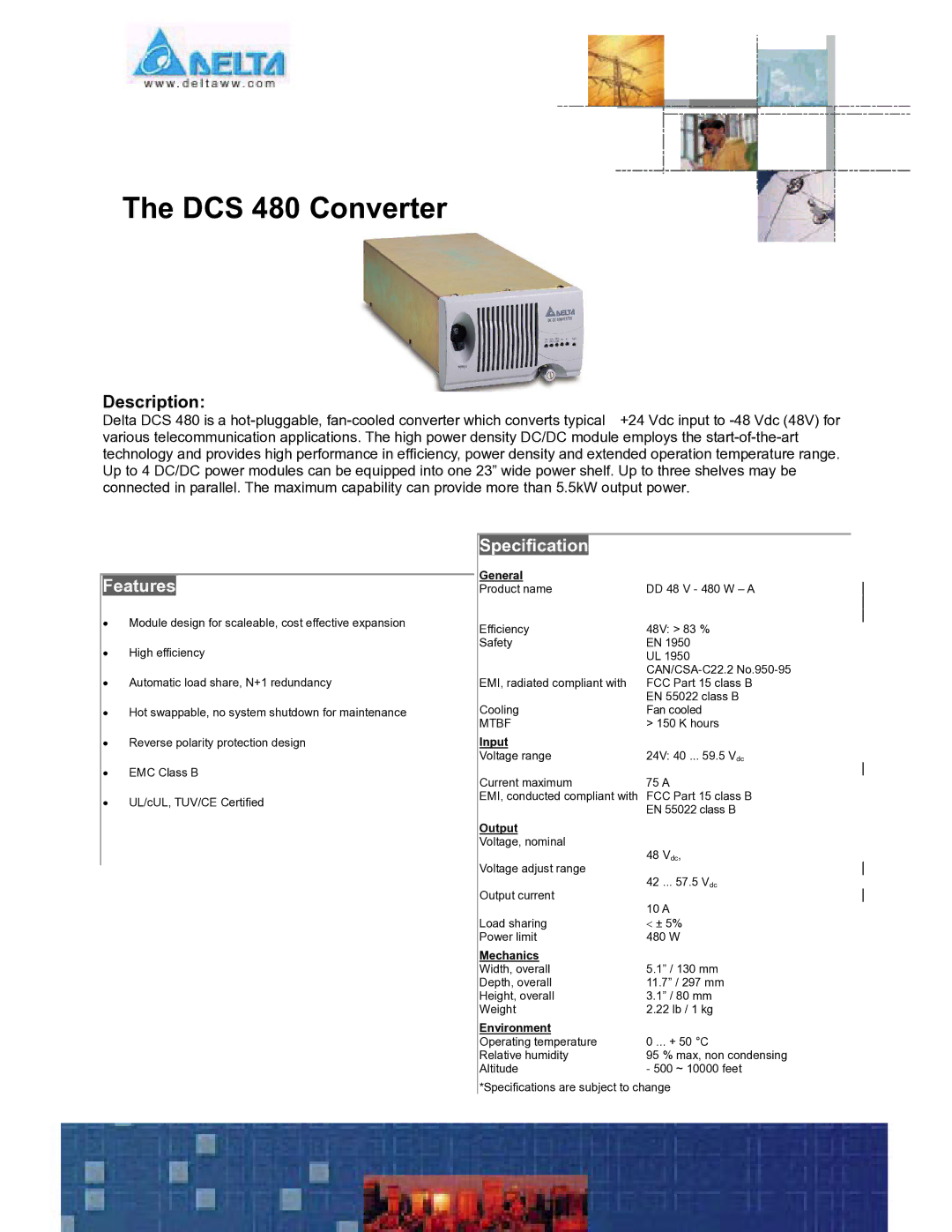DCS 480 specifications
Delta DCS 480 is a robust distributed control system designed to cater to the needs of various industrial sectors, including power generation, manufacturing, and process industries. Its flexibility and scalability make it an ideal choice for managing complex operations efficiently.One of the standout features of the Delta DCS 480 is its architecture, which allows it to integrate seamlessly with existing systems and processes. The system leverages a modular design, enabling users to customize configurations based on specific operational requirements. This modularity facilitates easy upgrades and expansions without a complete overhaul of the system, making it a cost-effective solution for long-term needs.
The Delta DCS 480 employs advanced communication protocols, including Ethernet/IP and Modbus, ensuring reliable and high-speed data exchange between field devices and the control system. This capability enhances the overall responsiveness of the system, allowing for real-time monitoring and control of processes. Additionally, it supports various types of field devices, including sensors, actuators, and programmable logic controllers (PLCs), enabling users to create a comprehensive automation solution.
Another key characteristic of the Delta DCS 480 is its user-friendly interface. The system is equipped with graphical visualization tools that provide operators with intuitive dashboards displaying essential data and process parameters. This visual representation simplifies decision-making and allows for quick identification of any anomalies in the system.
In terms of safety and security, Delta DCS 480 adheres to stringent industry standards. It incorporates features such as redundancy in critical components, ensuring high availability and minimizing downtime. Furthermore, robust cybersecurity measures are in place to protect the system from potential threats, safeguarding sensitive operational data.
Moreover, the Delta DCS 480 is designed for ease of maintenance. Its self-diagnostics capabilities help in detecting issues before they escalate, allowing for timely interventions. This proactive approach reduces the likelihood of unexpected failures and contributes to a smoother operational flow.
To summarize, Delta DCS 480 stands out as a reliable and versatile distributed control system equipped with advanced communication technologies, user-friendly interfaces, strong safety features, and ease of maintenance. These characteristics make it a valuable asset for industries looking to enhance automation and optimize their operational efficiency.

